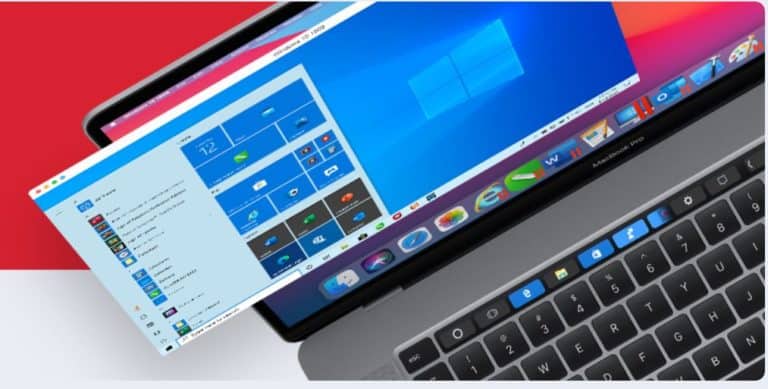Parallels has released version 16.5 of Parallels Desktop. With the latest version, virtualisation now runs natively on computers with Apple’s new M1 processor.
Running natively on the new processors allows for some impressive performance improvements. For example, the software is now said to use up to 250 percent less energy compared to a 2020 MacBook Air with an Intel processor. Furthermore, DirectX performance is up to 60 percent better compared to a MacBook Pro with Radion Pro 555X GPU. A virtual machine running Windows 10 ARM Insider Preview runs 30 percent better than a typical VM on a MacBook Pro with Intel Core i9 processor.
Already extensively tested
Compatibility shouldn’t be a problem either. ZDNet writes that more than 100,000 users have already tested the Technical Preview of Parallels Desktop 16.5 on their M1-powered Macs with tens of thousands of different Windows applications designed for x86 processors.
Significant breakthrough
“Apple’s M1 chip is a significant breakthrough for Mac users,” said Nick Dobrovolskiy, Parallels Senior Vice President of Engineering and Support. “The transition has been smooth for most Mac applications, thanks to Rosetta technology. However, virtual machines are an exception and thus Parallels engineers implemented native virtualization support for the Mac with M1 chip. This enables our users to enjoy the best Windows-on-Mac experience available.”
Other operating systems supported as well
Incidentally, Parallels is not only able to run Windows virtually on computers with Apple M1. The virtualisation software supports more than 50 operating systems, including multiple versions of Windows, macOS, Linux or even Android.
Availability
Version 16 of Parallels Desktop was released last August. That version added support for macOS Big Sur. The standard version costs a one-time fee of 79.99 euros. The Pro and Business Edition cost 99.99 euros as an annual subscription. Upgrading from Parallels 14 and 15 to version 16 costs a one-time fee of 49.99 euros for the standard version.
